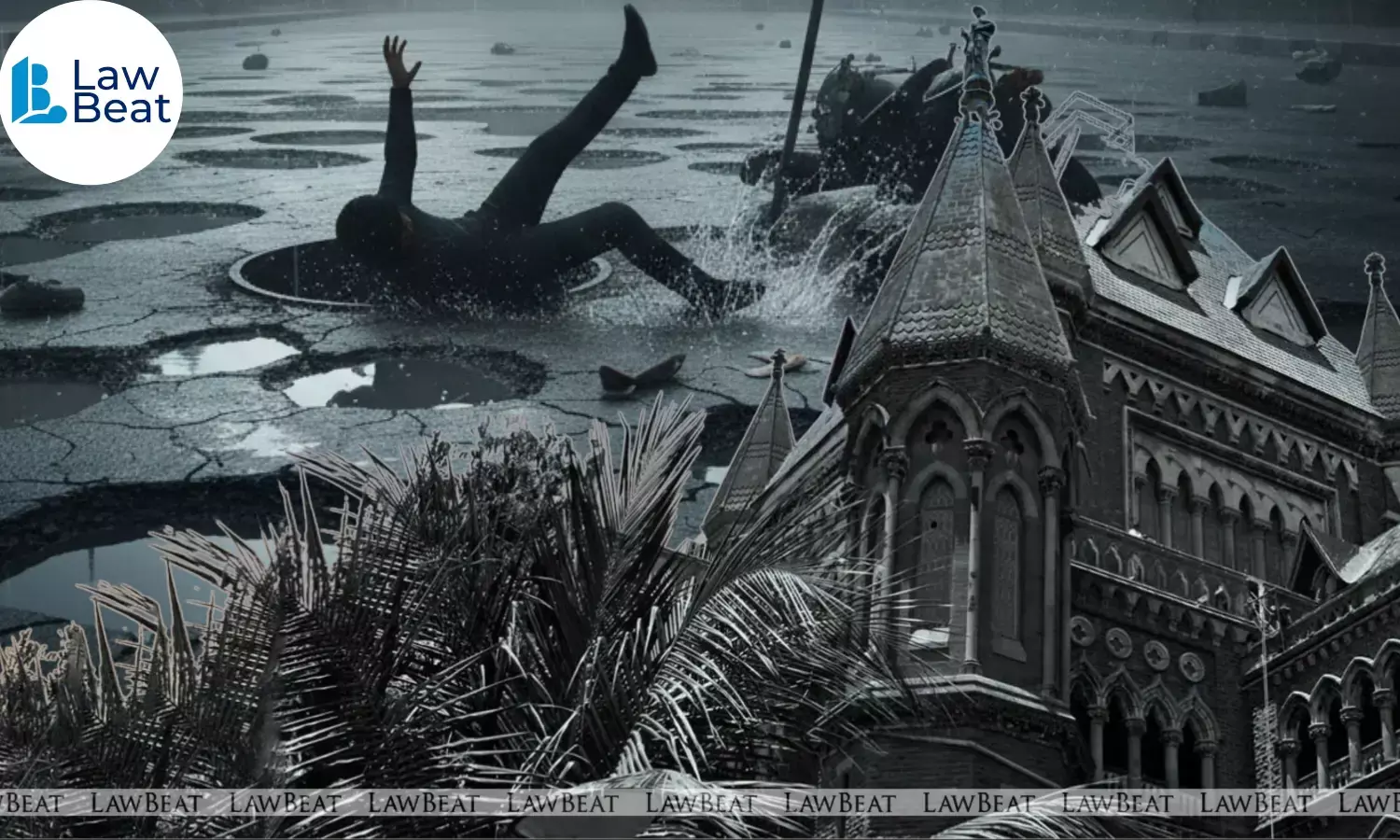Civic Bodies Must Pay for Pothole Related Deaths, Recover from Negligent Contractors: Bombay HC Rules

Bombay High Court Makes Civic Officials Liable for Pothole Deaths, Orders Compensation and Recovery from Contractors
The Bombay High Court has directed that victims and families of those who die or are injured due to potholes or open manholes on public roads must be compensated by the concerned civic or state authorities, holding them accountable for lapses in maintenance and negligence in road safety.
The Bench of Justice Revati Mohite-Dere and Justice Sandesh D. Patil directed that every complaint of a pothole or unsafe road condition received by the designated authority must be attended to immediately and, in any event, within forty-eight hours. In cases where a death or injury results from such neglect, the Court ordered that compensation be paid by the concerned municipal body or agency within six to eight weeks, with interest at nine per cent per annum on delayed payments.
The Court further mandated that a committee be constituted to supervise the inquiry and ensure recovery of the compensation amount from the responsible contractor or officer, in addition to disciplinary and penal proceedings including blacklisting of defaulting contractors.
The Bench referred to its earlier orders passed in the same public interest litigation since 2013, reiterating that the right to safe roads forms part of the fundamental right to life under Article 21 of the Constitution. It was noted that despite several prior directions and assurances, recurring incidents of deaths and injuries caused by potholes continue to be reported, particularly during the monsoon, exposing continuing negligence and lack of coordination among municipal and state authorities. Relying on its earlier decisions and the doctrine of continuing mandamus, the Court held that persistent failure to discharge statutory duties warrants judicial intervention to secure compliance and provide effective remedies to citizens.
The judgment traces the background of the case to the suo motu public interest litigation initiated by the High Court in 2013 to address the deteriorating road conditions in Mumbai and other parts of Maharashtra.
The Court had taken note of multiple media reports highlighting loss of life and serious injuries caused by potholes, unbarricaded manholes, and defective road surfaces. Over the years, the Bench examined numerous status reports, affidavits, and field surveys from civic bodies, the Maharashtra State Road Development Corporation (MSRDC), the Mumbai Metropolitan Region Development Authority (MMRDA), and the Public Works Department (PWD), which collectively revealed that fragmented responsibility and lack of coordination had undermined road safety.
During the proceedings, the Court monitored compliance by various agencies and had issued a series of practical and technology based directions over time, including the creation of a single window complaint system, a toll-free number, mobile and WhatsApp based reporting, and online tracking of pothole complaints through photographs and GPS mapping.
It had also directed the appointment of nodal officers in each district, public display of contact details at excavation or repair sites, and use of scientific repair techniques certified by expert institutions such as the Central Road Research Institute (CRRI) and the Indian Institutes of Technology (IITs).
In its present order, the Court observed that despite these measures, road related fatalities and injuries continue, demonstrating non-compliance by the concerned authorities. It thus framed a binding compensation mechanism to ensure accountability and timely redress. The judgment requires civic bodies and road authorities to upload before and after photographs of repairs, publish monthly action reports, and give wide publicity to the grievance redress and compensation mechanisms so that affected families can claim relief without procedural hurdles.
The Court emphasised that failure to implement these directions or delays in payment of compensation would attract personal liability for the officers concerned, along with interest and potential contempt proceedings.
The decision is expected to have far reaching implications across Maharashtra, particularly in large urban areas where road maintenance remains a recurring challenge. By linking road safety with enforceable compensation and officer liability, the judgment aims to establish a deterrent framework ensuring that neglect leading to loss of life or injury on public roads does not go unaddressed.
Case Title: High Court on its Own Motion v. State of Maharashtra & Ors.
Bench: Justice Revati Mohite-Dere and Justice Sandesh D. Patil
Date of Judgment: October 13, 2025
